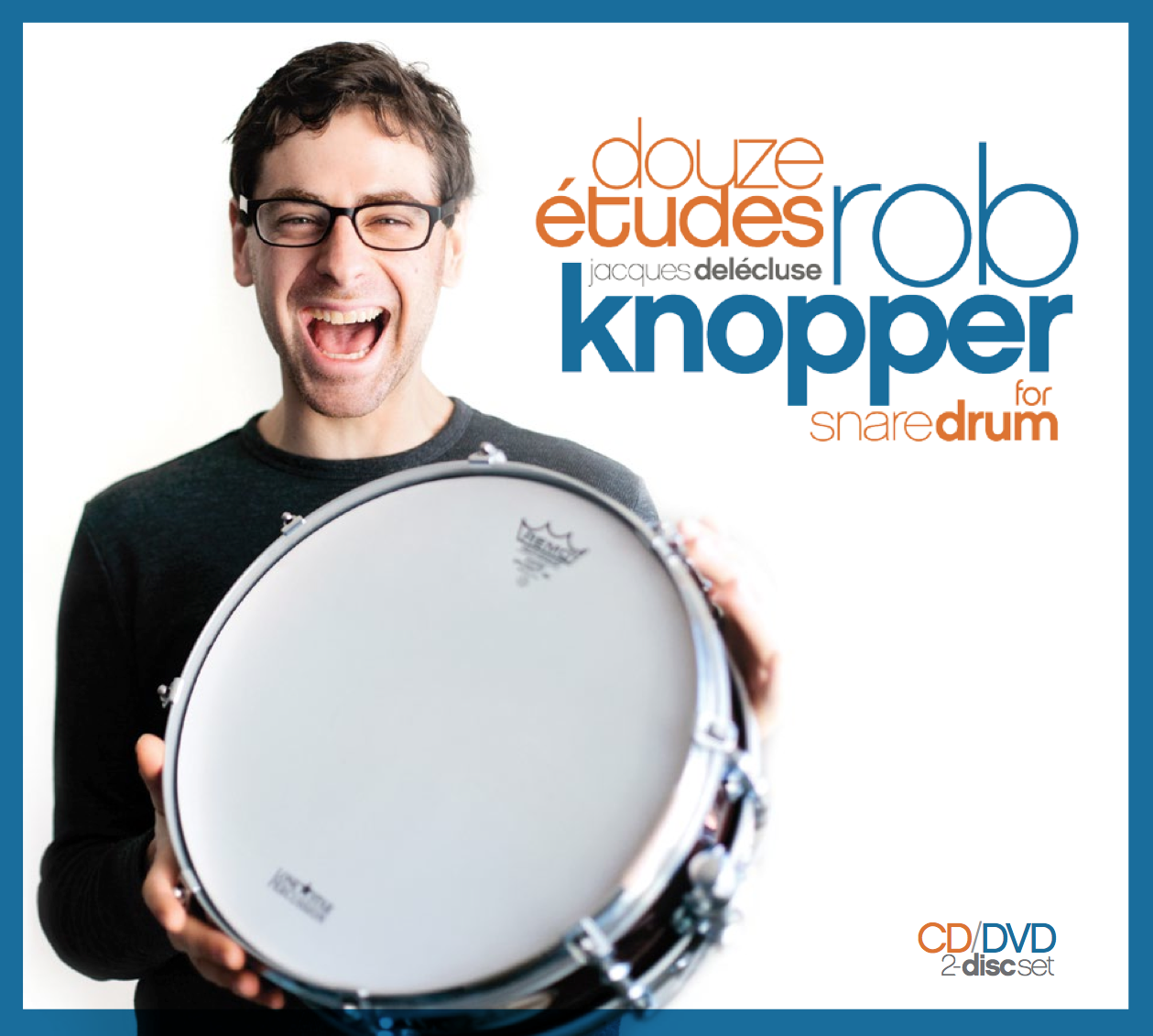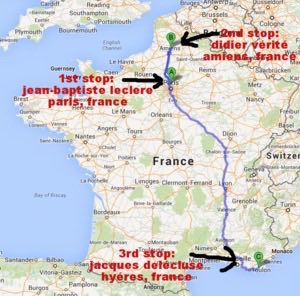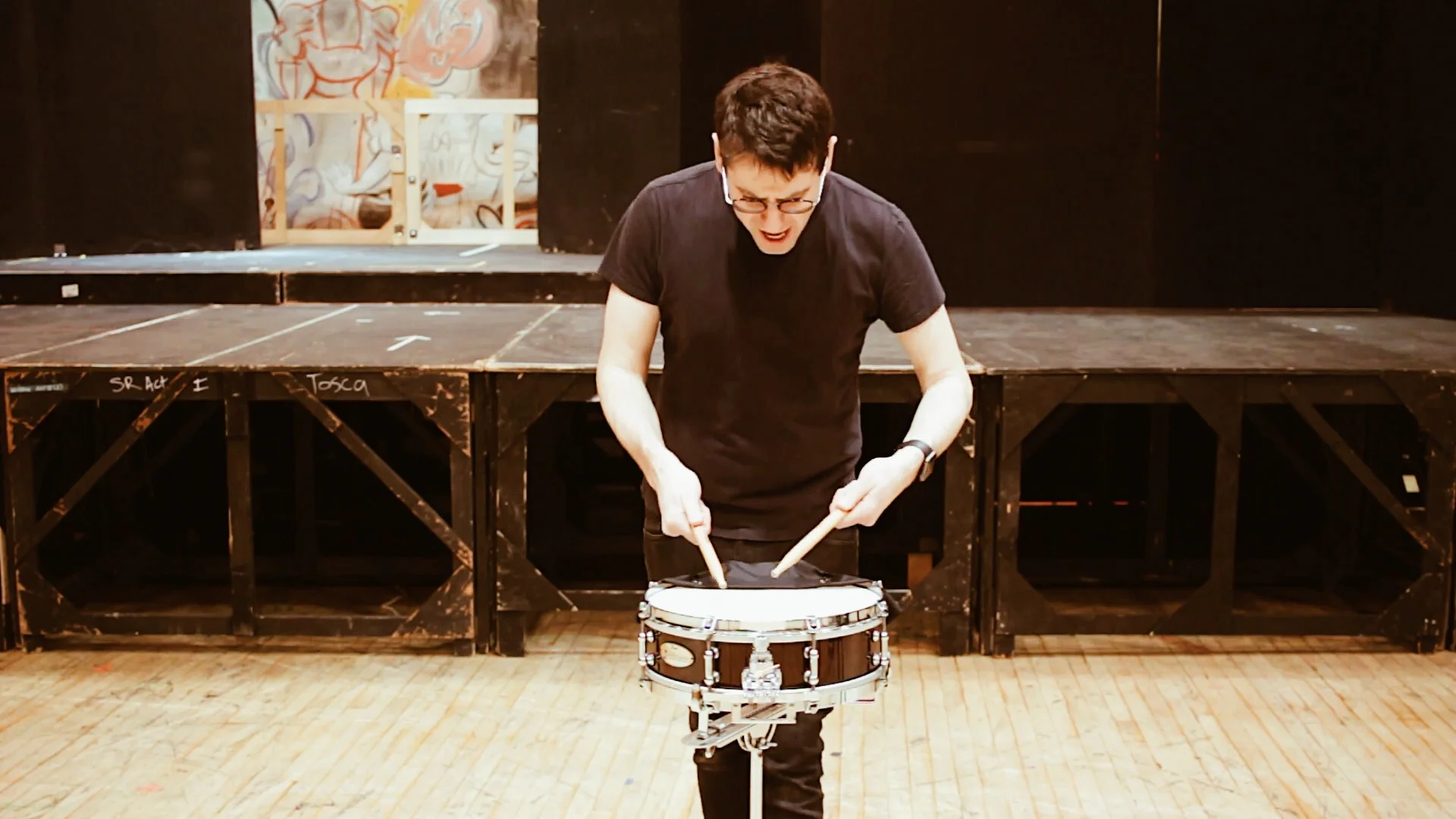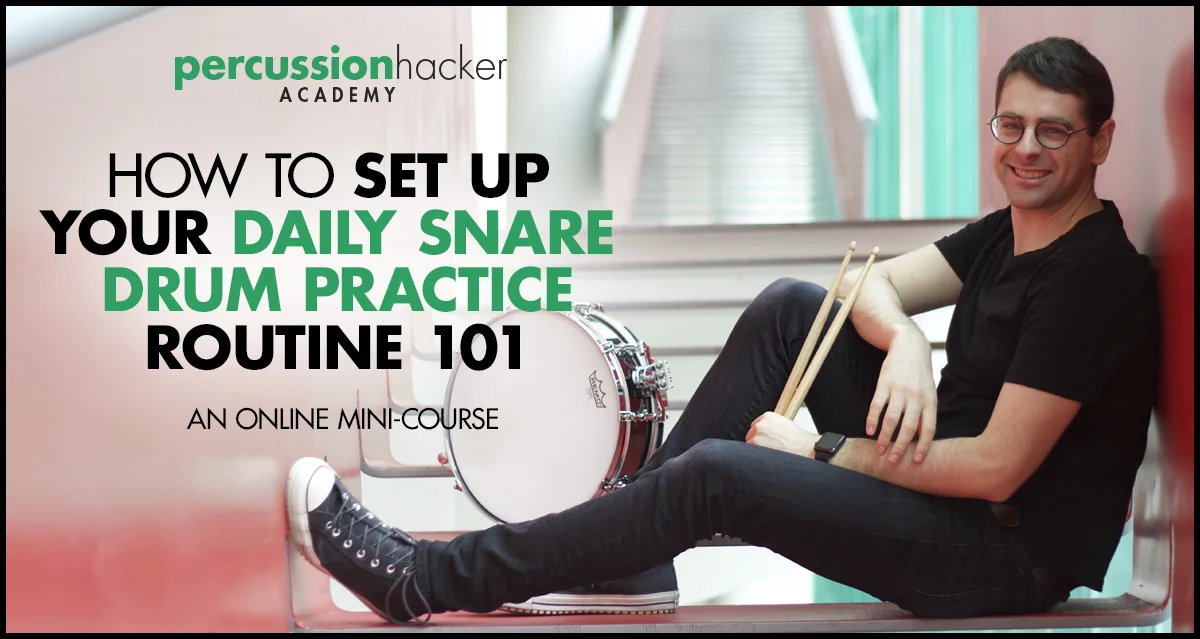jacques delécluse and myself (hyéres, france 2014)
delécluse is the most important percussion composer in the history of maybe ever, and he deserves a slightly taller statue than beethoven in this regard. that's why, when i found out that no one had ever recorded his most-played piece, douze études for snare drum, i was shocked and i immediately recorded it in video and audio.
what else hasn't been recorded or written about delécluse? basically everything. it's a forgotten subject, for some reason. there's one great article, written by the legendary frederic macarez, which is from 2002, and a variation on that from delécluse's induction into the pas hall of fame from 2009. then there's nothing. oh, that's right - nothing besides the fact that delécluse's music lands on basically every single college, professional, and summer festival percussion audition on the planet, and shapes our careers in so many ways. a google search for 'delecluse percussion audition' yields 31,700 results. so, in addition to bringing you a video and audio recording (the first!) of those most famous of pieces, i also went on a journey to the motherland: the french countryside, to learn a little more about the music we play so often.
the caisse-claire crawl
you know when you walk to 7 bars in a row and have one drink in each bar? that's called a bar crawl. what i did was like that, except instead of walking down amsterdam avenue in new york city, i traveled around the french countryside on trains and rental cars. and instead of drinking, i interviewed the greatest scholars of french snare drum on earth. even better. hence... the caisse-claire crawl.
caisse-claire crawl: a visual representation
my goal was to more deeply learn everything i could about delécluse and his music, like the why, how, who, how big, etc., including:
1. what is the french style of playing the etudes?
or is that even a thing?
2. do people play them as much in france as in the united states?
it could have been a ‘searching for sugar man’ situation where a local artist is extremely popular in a random place, but unknown in his home country. again, there is little-to-no information about this online.
3. how does delecluse want us to learn these pieces?
or does he care?
…and my biggest goal (which was, at first, just a pipe dream) was to meet delecluse himself. which i did. (more later.)
the almost-more-interesting part of this story is how i was even able to meet with delécluse. everything i had heard about him said that he was something of a recluse - not interested in talking about his compositions and not wanting to meet his many fans. these ended up being hearsay, and couldn't have been more wrong. i'll delve into this in future pieces.
1st stop: jean-baptiste leclere - paris, france
jean-baptiste leclere and myself (paris, france 2014)
jean-baptist leclere is the hip, young first percussionist of the paris opera, founder of the paris percussion group, and teacher. i’ve known him for a few years, although we had only met in new york. he came to see operas, listen to cymbals at zildjian, and nerd out on snare drum, tambourine, triangle, and other devices in the percussion room at the met opera house.
and there's a reason that i feel a strong connection with him - in two very different cities, with two different families, educations, and upbringing, we are both essentially having the experience of being thrown into a full-time opera company as a percussionist. the more we talk, the more we have in common.
jean-baptiste is a great teacher himself, and he and I talked at length about french percussion playing, the experience of playing operas by french composers with a french conductor in france, teaching, and other related subjects.
<spoiler alert!> he explained to me how he sets up his drum, how he helps students with musical and technical problems, and his four tenets of performance, which are:
1. brain
2. ears
3. heart
4. hands
2nd stop: didier vérité - amiens, france - the guide to playing delécluse
didier vérité and myself (amiens, france 2014)
didier vérité is many things: a percussionist in the paris opera, a student and scholar of delécluse and french snare drum, a fisherman, a teacher, an amateur apple cider brewer, a pet bird owner, and so much more.
actually, he’s more than all of those things. he lives for figuring things out and explaining them, whether he was explaining the evolution of written snare drum notation or the ways that different regional french apple-based alcoholic beverages are cultivated. when i went to visit him, after a two hour train ride outside of paris, i realized very quickly that neither of us spoke a word of the other’s language. everything was interpreted through his wife murielle, who is a classical and colombian harpist. he gave me, in three short, hazy hours, what amounts to a guide to playing delécluse.
he spoke with an extremely high regard for delécluse, who was his teacher for three years at the paris conservatoire. didier considers delécluse, his composition, and his concept of snare drum to be a major turning point in the evolution of snare drum throughout the last hundred years. our discussion spanned the modern history of french snare drum, from the tambour of the late 1800’s, which had all left hand strokes written below the staff and all right hand strokes written above, to the modern caisse-claire.
i was walked through a laundry list of tips on how to play delécluse correctly. the music of delecluse and french caisse-claire playing comes steeped in regional tradition, from the military traditions in napoleon’s army to the present-day. these deal with crescendos, ornaments, dynamics, inflections, ways to practice, and other helpful nuggets of info.
3rd and final stop: jacques delécluse - hyeres, france
what can be said about jacques delécluse? he is the king.
meeting him was like going back in time and getting to ask bach himself what inspired him to write his violin sonatas. or like sitting down with beethoven and asking him if he knew what kind of effect he'd have on timpani playing. i simultaneously couldn’t stop asking questions and couldn’t get words out of my mouth.
it doesn’t take much math to figure out that i’ve spent more time playing delécluse’s music than literally any other composer of any genre of music. that includes opera, symphonic music, rock, contemporary, marimba solo, etc. although he is advancing in age and speaks more slowly than he used to, he spoke with eloquence and the true knowledge and perspective of a lifetime of thoughtful percussion playing.
the end.
and that, my friends, was the caisse-claire crawl of a lifetime, although i hope it won’t be the last.
want to see my complete snare drum setup?
here’s my 8-piece snare drum setup, including every piece of gear and accessory you'll need. (and it's totally audition-ready, too.)













the snare drum seems like it could be the most boring instrument on earth. regardless, you still have to sound as musical as any violinist or oboist or trumpeter.
in today's video, i'm showing you 7 ways you can express phrasing and musicality on the snare drum.